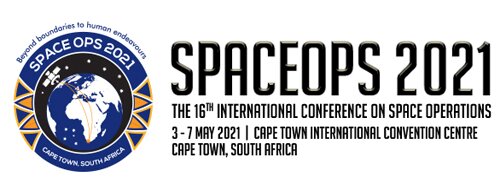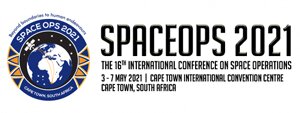Teaching English and exploring Space: British program
03/07/2024
The attraction of space exploration has enthralled humanity for decades, and the United Kingdom has played an essential role in this vast journey. But what if I told you that knowing about British space research helps you improve your English? Exploring the exciting world of space missions, astronauts, and significant scientific discoveries will help you improve your vocabulary, comprehension, and general language skills.
You can make it easy on yourself initially by booking English lessons online. Why is this convenient? When booking a lesson, you can contact the tutor with the topic you are interested in. If the tutor is interested in it or is already an expert, the tutor will prepare a themed lesson.
History of British space exploration
The United Kingdom has a long and rich history of space exploration, stretching back to the mid-twentieth century. The British Interplanetary Society (BIS), established in 1933, was one of the first organisations committed to promoting space travel. The society's members, including renowned people such as Arthur C. Clarke, helped shape early conceptions of space flight and exploration.
The Black Arrow rocket, developed by the United Kingdom in the 1960s, was a significant advance in space technology. This rocket successfully launched the Prospero satellite in 1971, making the United Kingdom one of the few countries to design and launch its satellite. By studying these historical landmarks, you may broaden your vocabulary to include phrases like "satellite," "rocket," "launch," and "interplanetary."
Useful English vocabulary
- Satellite: An artificial body orbiting Earth or another planet.
- Rocket: A vehicle propels itself by releasing exhaust gas from one end.
- Launch: To send into motion, especially in the context of spacecraft.
- Interplanetary: Existing between worlds.
British contributions to the international programs
The United Kingdom has also actively participated in international space initiatives. One of the most significant cooperation is with the European Space Agency (ESA). The UK has contributed to several ESA projects, notably the Rosetta mission, the first to land a spacecraft on a comet. Learning about these multinational corporations will help you understand concepts such as "mission," "spacecraft," "comet," and "collaboration."
Space vocabulary in English
- Mission: A specified assignment or responsibility assigned to an individual or organisation; in this case, a space exploration task.
- A spacecraft is designed to travel or operate in outer space.
- Comet: A celestial object made up of a core of ice and dust.
- Collaboration: Working together to produce or construct something.
British astronauts
The United Kingdom has produced numerous astronauts who have contributed significantly to space exploration. One of the most well-known is Tim Peake, who spent six months on the International Space Station (ISS) from 2015 to 2016. Peake conducted various scientific experiments throughout his trip, held educational events for schools and the general public, and even ran a marathon in space! Learning about his adventure might help you grasp words like "astronaut," "experiment," "International Space Station," and "educational program."
English space vocabulary
- Astronaut: A person trained to travel in spacecraft.
- Experiment: A scientific technique to uncover or evaluate a theory.
- International Space Station (ISS): A space station or inhabited artificial satellite in low Earth orbit.
- instructional Program: A planned series of instructional activities.
Scientific discovery and innovation
British scientists and engineers have been at the forefront of many scientific discoveries and technological advances in space exploration. For example, the Beagle 2 mission sought to discover indications of life on Mars. Despite the problems, the mission provided vital data and ideas that continue to guide ongoing Mars exploration endeavours. Studying these scientific pursuits will teach you terminology such as "discovery," "innovation," "data," and "Mars."
Space vocabulary
- Discovery is discovering or learning something for the first time.
- Innovation: A novel approach, concept, or product.
- Data: Facts and data gathered for research or analysis.
- Mars: The fourth planet from the Sun in our solar system.
Tips for learning English through space from online tutors
Now that you're better grasped British space exploration let's discuss practical ways to use this exciting subject to enhance your English.
Reading space articles
Reading articles and books is an excellent way to increase your vocabulary and reading comprehension. Look for stories from trustworthy sources such as the BBC, The Guardian, and space-related websites. Books authored by British astronauts, scientists, and engineers can give detailed information and introduce you to specific vocabulary.
Watching space documentaries
Visual media may be an extremely effective tool for language acquisition. Watch documentaries and movies on astronauts, and technical advancements. Pay attention to the language used and attempt to comprehend the context in which specific phrases are employed. Channels like the BBC, National Geographic, and YouTube provide many needed videos.
Engaging in discussions
Participating in talks about space exploration might help you improve your speaking and listening abilities. Join online forums, social media groups, or local clubs for space enthusiasts. Engage in discussions, ask questions, and offer your expertise. This will enhance your language abilities and help you grasp the subject better.
Writing posts about space
Writing can help reinforce your knowledge and enhance your writing abilities. Start a blog, write articles, or keep a notebook to record your findings and ideas. Focus on applying the new language you've acquired and attempting to express complicated subjects in your terms.
Attending space workshops
Many organisations like the British Interplanetary Society and the UK Space Agency hold space exploration-related courses, talks, and events. Attending these events allows you to learn from experts, ask questions, and network with fellow space enthusiasts. These encounters can help you improve your language abilities and expand your knowledge.

